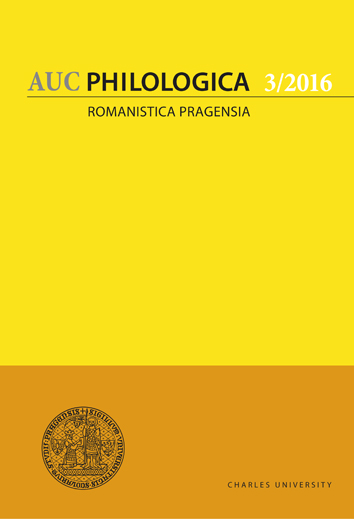¿Designan las formas gramaticales algo más allá de la misma lengua? El caso del presente de indicativo y el presente de la perífrasis {ESTAR + -NDO} en español
Do grammatical forms stand for something beyond language? the case of the present indicative and the present in the spanish periphrasis {ESTAR + -NDO}
Author(s): Ariel Laurencio TacoronteSubject(s): Language and Literature Studies
Published by: Univerzita Karlova v Praze, Nakladatelství Karolinum
Keywords: verbal periphrases; metaoperational grammar; enunciation grammar; utterance
Summary/Abstract: The present article deals with the possible differences in use between the Present Indicative and the present form of the {ESTAR + -NDO} verbal periphrasis in Spanish. For this purpose, their distribution in different utterances will be analysed with the help of the principles of metaoperational grammar (Adamczewski 1978, 1982, 1996). The language samples used will consist in utterances inserted into their discursive context, in order to properly appreciate the role each form will play in the communicative exchange. Our goal is the confirmation of a single operating value for each form, besides the different discursive meaning effects they might generate.
Journal: Acta Universitatis Carolinae Philologica
- Issue Year: 2016
- Issue No: 3
- Page Range: 183-195
- Page Count: 13
- Language: Spanish

